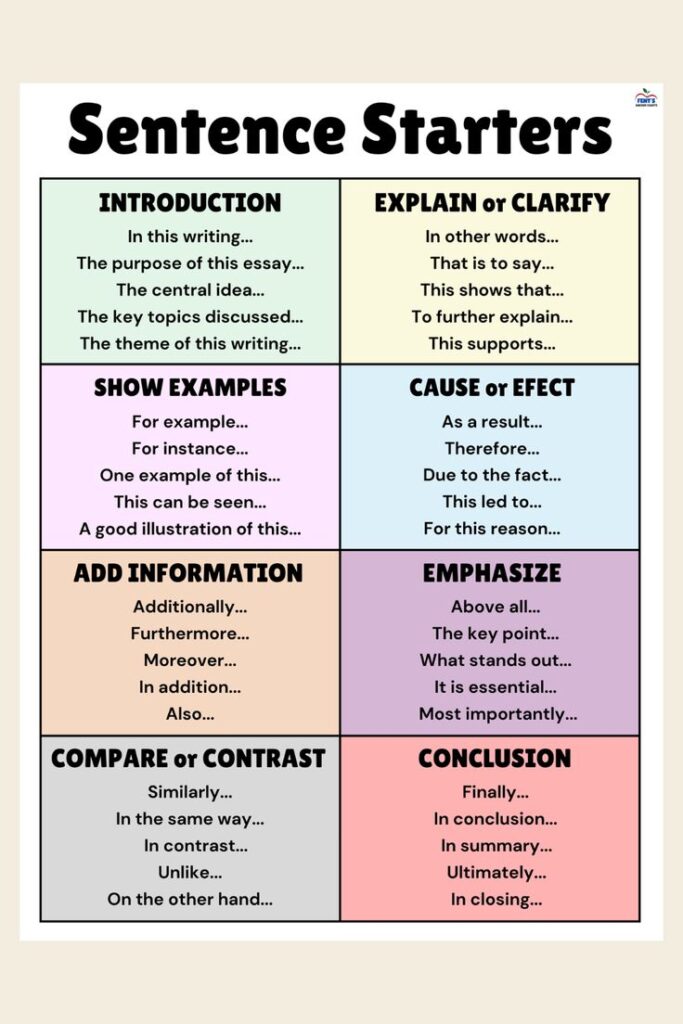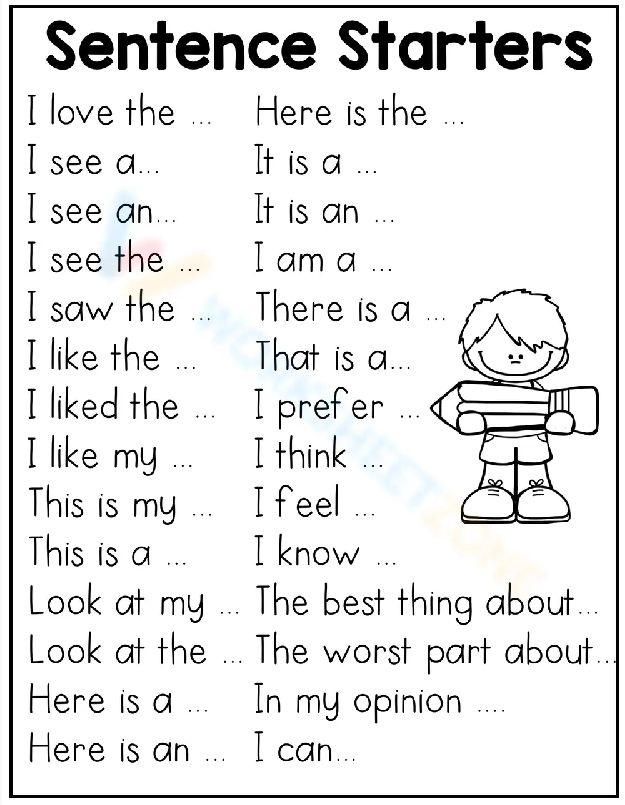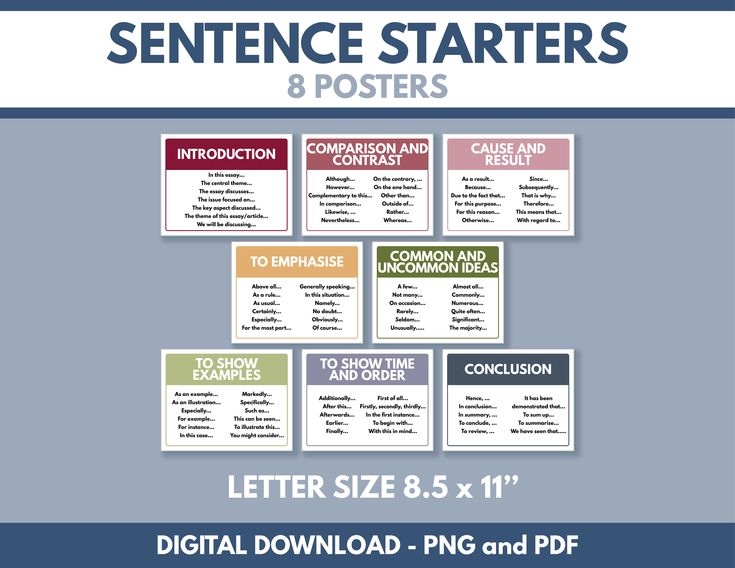Speaking English fluently requires confidence and the right words to begin your thoughts. Sentence starters are phrases or words that help you start a sentence smoothly, making conversations clear and engaging. Whether you’re a student, professional, or learner, mastering 100 essential sentence starters for English speaking can boost your communication skills. This article explains what sentence starters are, why they’re important, and provides a list of 100 simple starters for intermediate learners to use in daily conversations.
What Are Sentence Starters?
Sentence starters are short phrases or words that kick off a sentence. They help you express ideas, share opinions, ask questions, or respond in conversations. For example, starters like “I think,” “In my opinion,” or “Can you tell me” set the tone for what you’re about to say. They make your speech sound natural and organized.
Why Are Sentence Starters Important?
Using sentence starters in English speaking has many benefits:
- Improves Fluency: They help you start speaking without hesitation.
- Organizes Thoughts: Starters give structure to your ideas, making them easier to understand.
- Builds Confidence: Knowing ready-to-use phrases makes you feel prepared.
- Enhances Clarity: They guide listeners to follow your point clearly.
Learning 100 essential sentence starters for English speaking can make you sound more professional and confident in conversations.

Categories of Sentence Starters
Sentence starters can be grouped based on their purpose. Here are the main types with examples:
- Expressing Opinions:
- Examples: I believe, In my opinion, I feel that
- Example sentence: I believe everyone should learn English.
- Asking Questions:
- Examples: Can you tell me, What do you think, Why is it
- Example sentence: Can you tell me how to improve my speaking?
- Agreeing or Disagreeing:
- Examples: I agree, That’s true, I’m not sure if
- Example sentence: I agree with your point about learning new words.
- Adding Information:
- Examples: Also, In addition, Furthermore
- Example sentence: I practice daily. In addition, I watch English shows.
- Starting a Conversation:
- Examples: Hi, how are you, Let’s talk about, I was wondering
- Example sentence: Let’s talk about your favorite movie.
100 Essential Sentence Starters for English Speaking
Below is a list of 100 essential sentence starters divided into categories for easy learning. These are simple and perfect for intermediate English speakers.
Expressing Opinions (20 Starters)
- I think
- In my opinion
- I believe
- I feel that
- It seems to me
- From my perspective
- I strongly believe
- As far as I’m concerned
- I’m convinced that
- To me
- I would say
- My view is
- I personally think
- It’s my belief that
- In my view
- I feel strongly that
- My opinion is
- I suppose
- It appears that
- From my point of view
Asking Questions (20 Starters)
- Can you tell me
- What do you think
- Why do you think
- How can I
- Could you explain
- What is your opinion on
- Do you know
- Why is it
- How do you feel about
- Can you help me understand
- What does it mean when
- Could you tell me more about
- Is it true that
- What’s the reason for
- How does this work
- Do you think
- Can I ask
- What are your thoughts on
- Why should I
- How come
Agreeing or Disagreeing (15 Starters)
- I agree
- That’s true
- Absolutely
- I completely agree
- You’re right
- That makes sense
- I see your point
- I’m not sure if
- I disagree
- I don’t think so
- That’s not true
- I’m afraid I disagree
- I see what you mean, but
- Not really
- I have a different opinion
Adding Information (15 Starters)
- Also
- In addition
- Furthermore
- Besides
- Moreover
- What’s more
- On top of that
- Another thing is
- Plus
- As well as
- Not only that
- And also
- Additionally
- Along with
- By the way
Starting a Conversation (15 Starters)
- Hi, how are you
- Let’s talk about
- I was wondering
- What’s up
- Have you heard about
- Can we discuss
- I wanted to talk about
- How’s it going
- So, what do you think about
- I’d love to know
- Hey, have you seen
- Let me ask you
- What’s new with you
- Can I share something
- I’ve been thinking about
Clarifying or Explaining (15 Starters)
- In other words
- To clarify
- What I mean is
- Let me explain
- To put it simply
- Basically
- In simple terms
- Let me make it clear
- To be clear
- What I’m saying is
- To break it down
- Put another way
- Simply put
- For example
- To illustrate

How to Practice Sentence Starters
Here’s how you can use these 100 essential sentence starters for English speaking:
- Memorize a Few Daily: Pick 5–10 starters each day and practice using them.
- Use in Conversations: Try them in real-life talks with friends or teachers.
- Write Sentences: Create sentences with each starter to understand their use.
- Practice with a Partner: Role-play conversations using different starters.
- Record Yourself: Speak and record to check how natural you sound.
You can also find printable worksheets or apps online to practice these starters. Search for “English speaking sentence starters PDF” for free resources.
Tips for Using Sentence Starters
- Keep It Natural: Use starters that fit the context of your conversation.
- Don’t Overuse: Avoid repeating the same starter too many times.
- Practice Regularly: The more you use them, the more confident you’ll become.
- Listen to Native Speakers: Watch English shows or listen to podcasts to hear how starters are used.
- Be Clear: Choose starters that make your point easy to understand.
Where to Find More Resources
You can find more sentence starter resources on:
- Educational websites like BBC Learning English or ESL Gold
- Apps like Duolingo or FluentU
- YouTube channels teaching English speaking
- Free PDFs by searching “sentence starters for English speaking”
These resources often include exercises and examples to help you practice.
Conclusion
Mastering 100 essential sentence starters for English speaking can transform your conversations. These simple phrases help you start sentences confidently, organize your thoughts, and sound fluent. Practice them daily, and you’ll notice a big improvement in your English-speaking skills. Start using these sentence starters today to speak English like a pro!
Frequently Asked Questions (FAQs)
What are sentence starters in English speaking?
Sentence starters are phrases or words that help you begin a sentence in a conversation. They make your speech clear and natural, like “I think” or “Can you tell me.”
Why should I use sentence starters?
Sentence starters improve fluency, organize your thoughts, and make conversations easier to follow. They also boost confidence in speaking English.
How can I practice sentence starters?
You can practice by memorizing a few daily, using them in conversations, writing sentences, or role-playing with a partner.
Where can I find sentence starter worksheets?
Search for “sentence starters for English speaking PDF” on Google or visit websites like ESL Gold, BBC Learning English, or Teachers Pay Teachers for free resources.
Can sentence starters help with exams like IELTS or TOEFL?
Yes, sentence starters help you express ideas clearly and organize your responses, which can improve your speaking and writing scores in exams like IELTS or TOEFL.
